
THE NAVIGATING CHANGE CATALOG IS HERE TO HELP YOU ENGAGE, PROVOKE, AND EDUCATE.
Navigating Change: The Podcast from Teibel Education

216: Becoming part of the solution with Roger L. Martin
Revisiting our conversation with Roger L. Martin on an important message from our conversation back in 2015: What does it mean to be a part of the solution, not part of the problem?
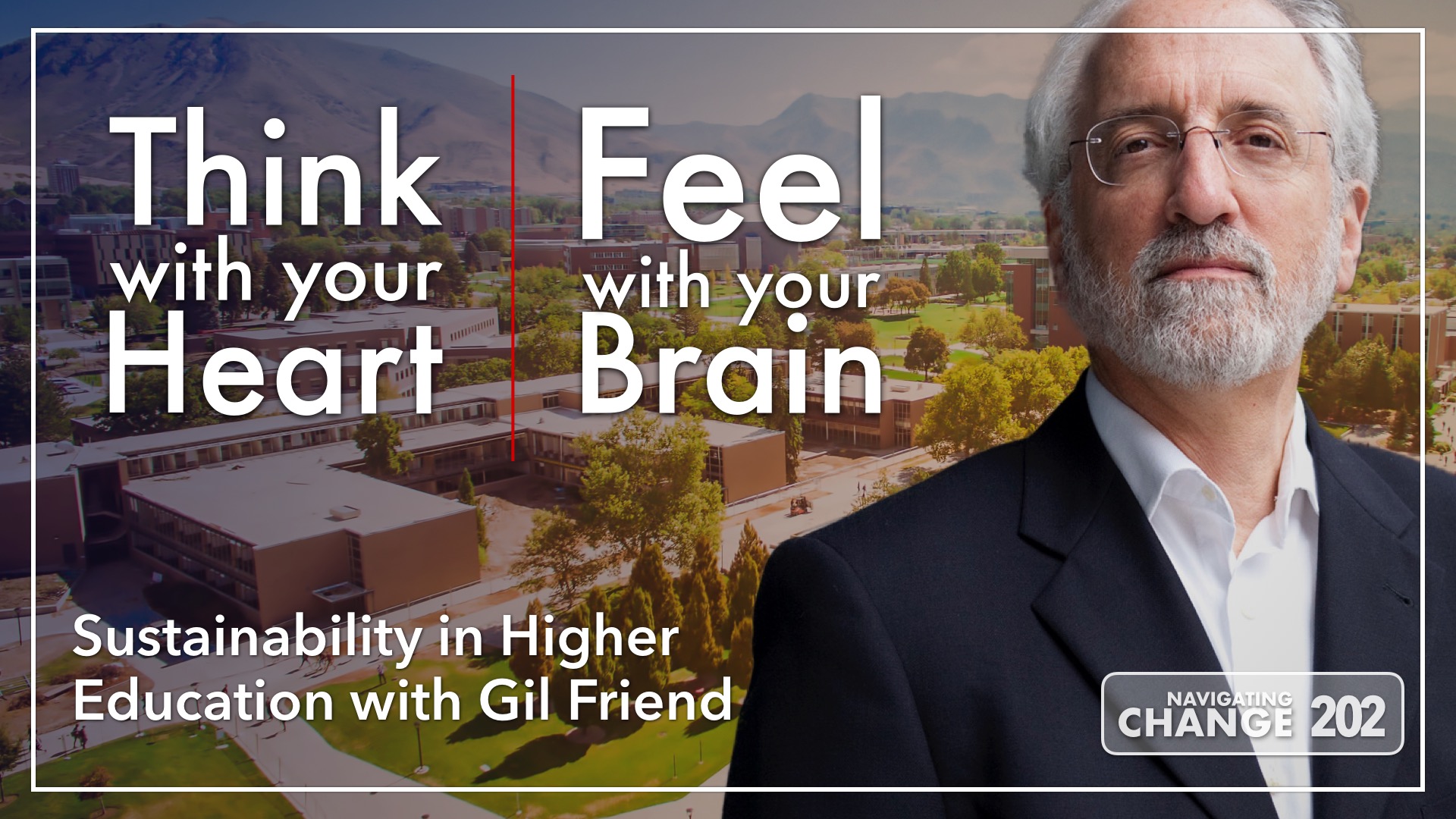
202: Thinking with your heart, feeling with your brain — Sustainability in Higher Education with Gil Friend
Our guest this week occupies a unique leadership position in the field of sustainability and brings a perspective to difficult conversations that can help us change the way we take part in sustainable leadership.
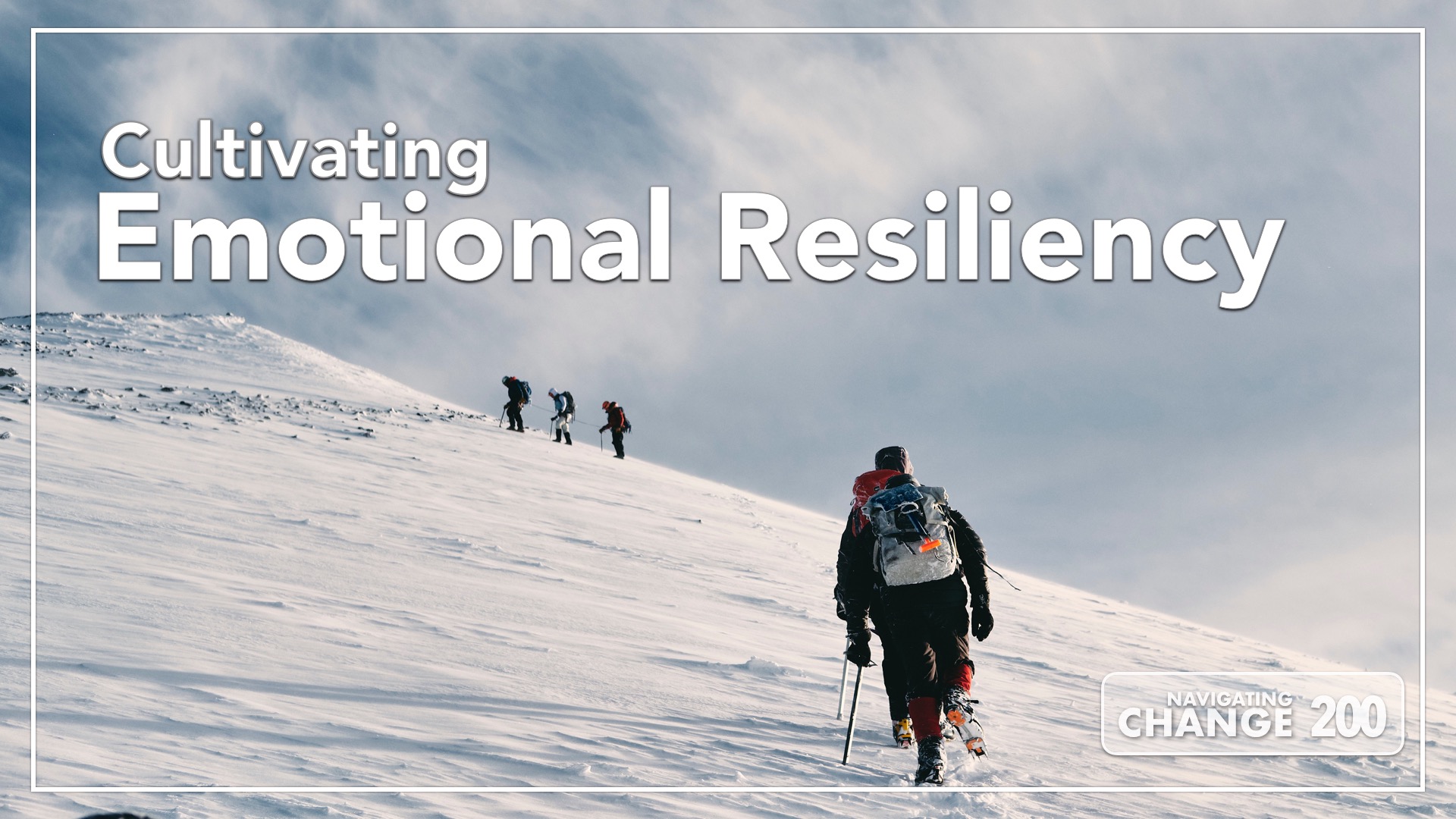
200: Cultivating Emotional Resiliency
This week on the show, we’re talking about emotional resiliency, a rarely discussed construct for education leaders. Learning how to show up as emotionally resilient is the backbone to navigating uncertainty and leading others to a future that addresses the concerns of those we serve.
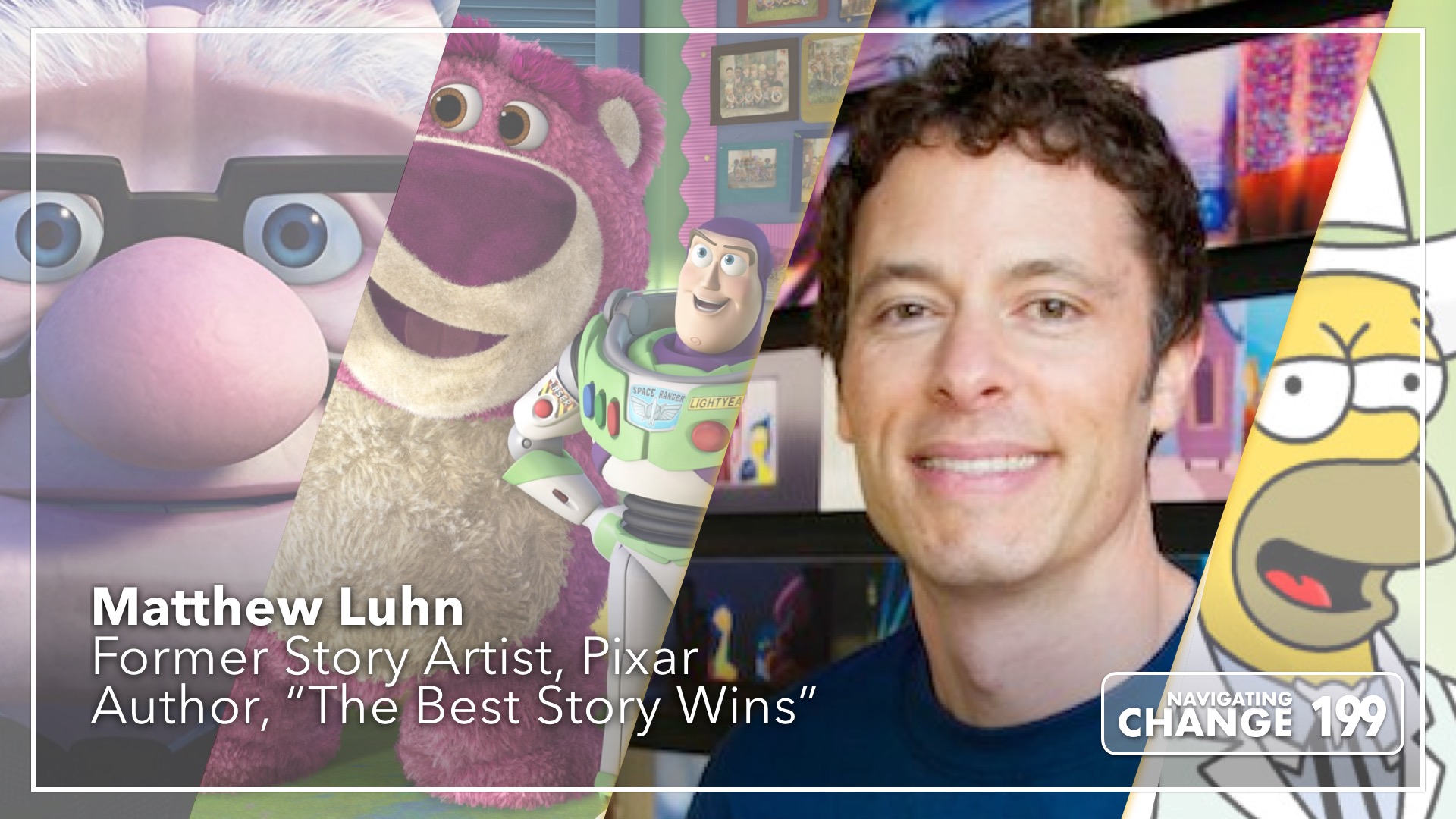
199: The Best Story Wins in Film ... and Higher Ed with former Pixar story artist Matthew Luhn
Former Pixar story artist Matthew Luhn believes the same craft and skill that he honed over 25 years telling stories for Pixar and The Simpsons can be put to work for the rest of us. For Matthew, anyone seeking to inspire movement and change can do just that with a little study and practice in the power of the narrative.
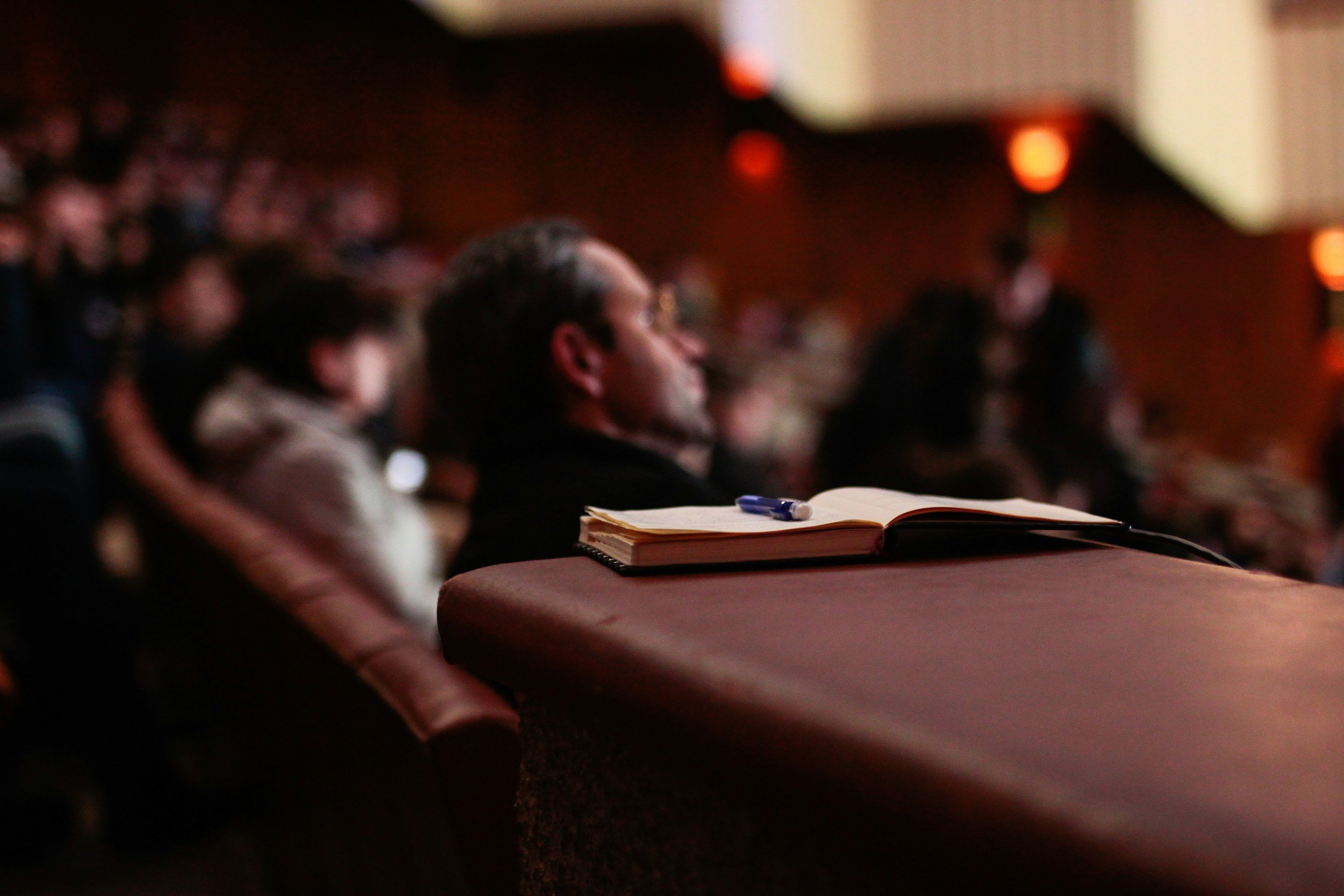
198: The Secret to Influencing your Most Critical Audience
It’s natural to want everyone around you to be happy with your newest idea. In an ideal world, you’d communicate what you want, everyone on your teams would align and we’d all go home at 5 and relax with our feet up.
That’s not going to happen.

197: Are you Building a Resilient Higher Ed Culture? — FAEF Leadership Panel 2018
Howard Teibel moderated a panel of three financial officers at the NACUBO 2018 Annual Meeting to hear the stories from private and public institutions who are empowering members of their campus community to play a key role in driving innovative change.

194: "The Beginner's Creed": What does it mean to be a beginner?
Peter Denning joins us today in a conversation about what it is to be a beginner and the power of facing our moods of discomfort and confusion that mark being a beginner. He shares with us his own journey along with his learning about mood and how to move in the world from his learning with Dr. Fernando Flores and Gloria Flores.
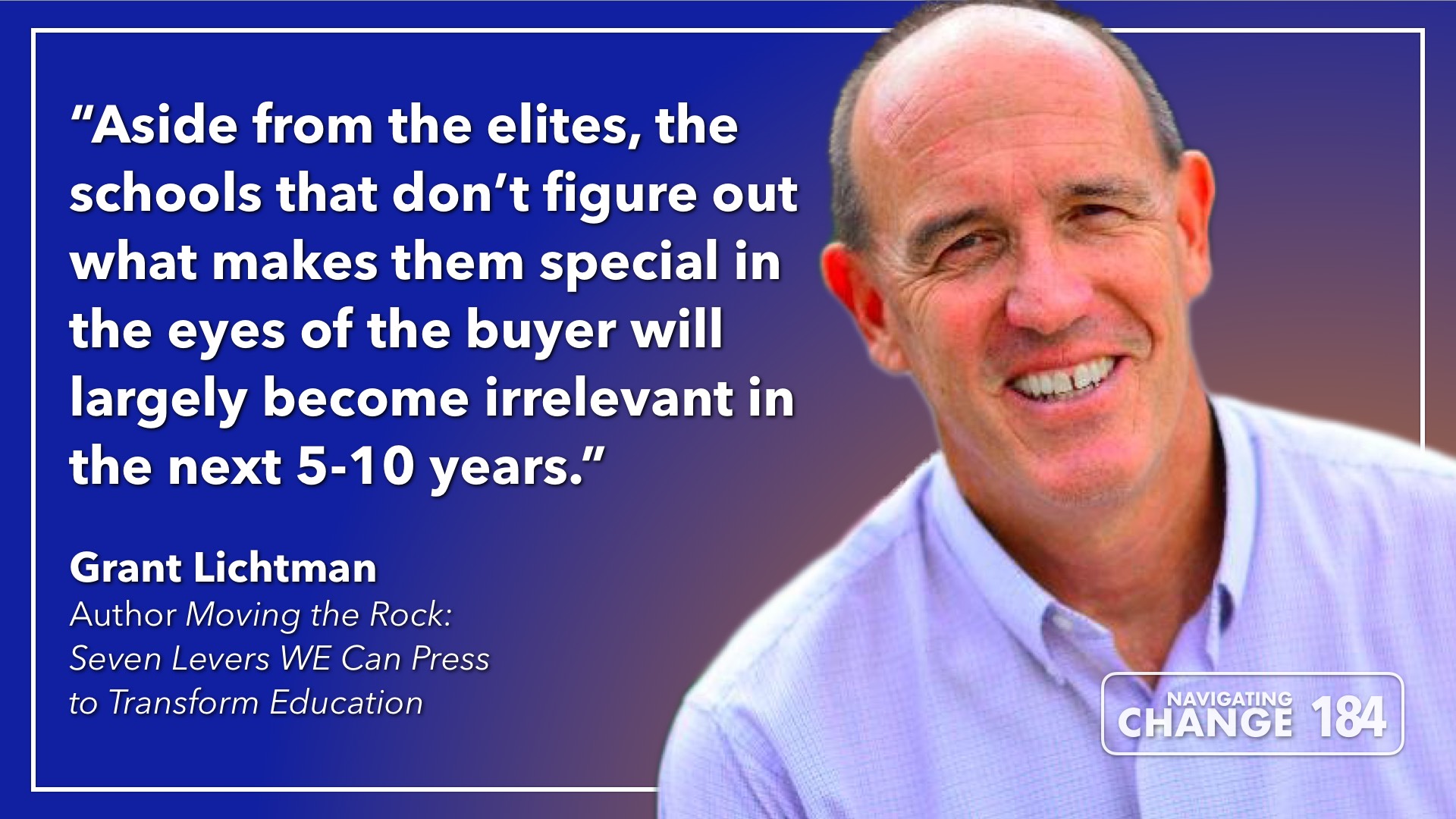
184: Grant Lichtman on ‘Moving the Rock’ and Schools' Struggle with Identity
Our guest today returns to share the story of his research toward his latest book and his work understanding the nature of change in education today. In Grant Lichtman’s latest book, Moving the Rock: Seven Levers WE Can Press to Transform Education, he outlines the three fundamental questions facing education today: Why should we change, what is the change going to look like, and how do we get there?

183: Finding Your Calling — Part 2
In our last episode, we shared the first half of our conversation on finding your calling, recorded on a shady porch at The Chautauqua Institution in New York. This week, we’re picking up where we left off with a few quick but important observations.
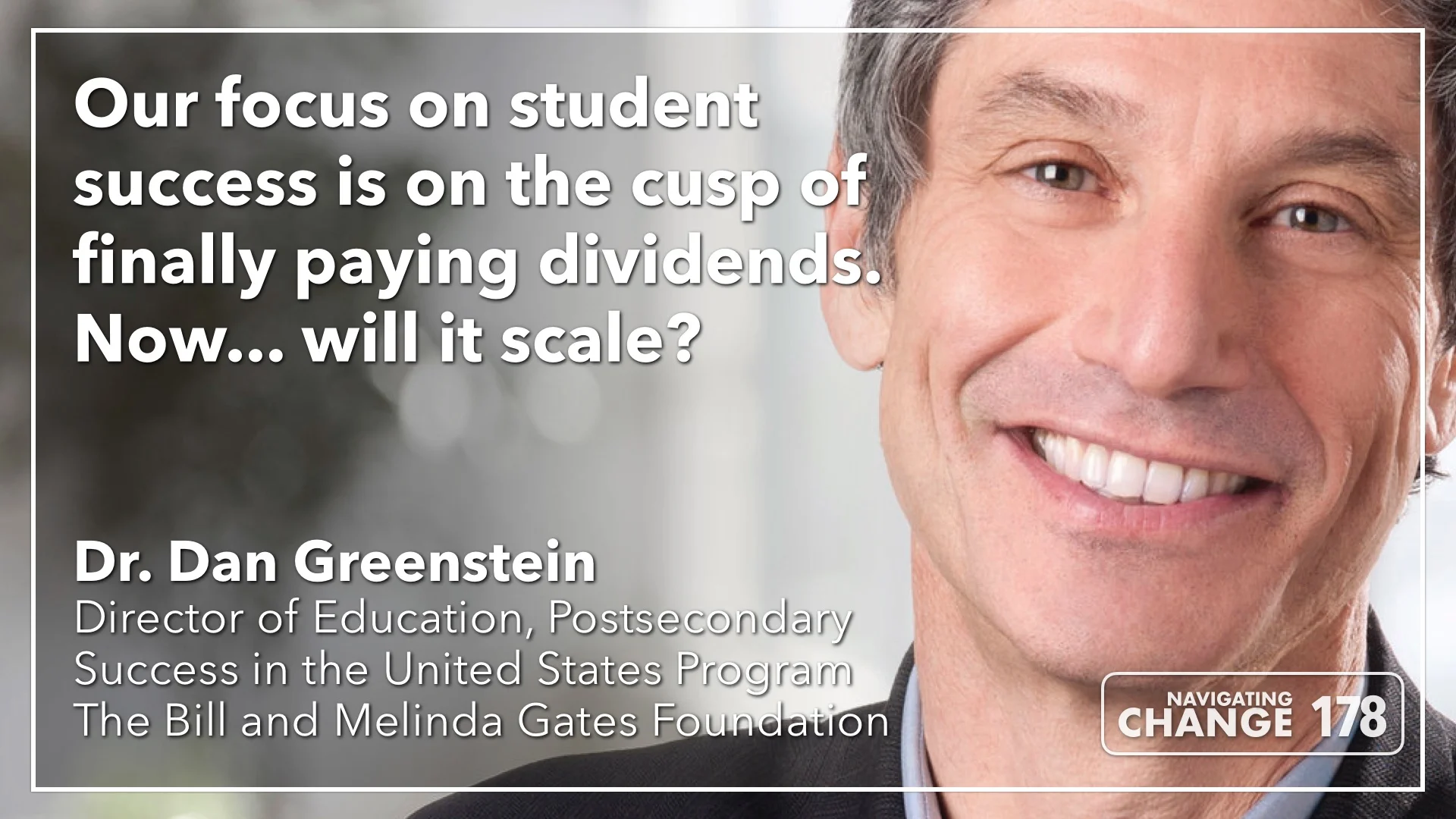
178: Gates Foundation’s Daniel Greenstein on Equity, Sustainability, and the Road to Opportunity
Dr. Daniel Greenstein serves as director of Education, Postsecondary Success in the United States Program, for the Bill and Melinda Gates Foundation. In our conversation this week, Dr. Greenstein takes us on a journey of student success, and presents powerful factors in sustainable financial success of our institutions. This is a conversation about innovation, disruption, and engaging in an effort to take on bold ideas in support of our own future as educators.

170: Next Gen Learners? Educators Must Adapt says Futurist Elliott Masie
“The biggest mistake we make is that we think the best subject matter experts will be the best teachers,” says our guest, Elliott Masie. He’s head of the Masie Center, a think tank focused on how organizations can support learning and knowledge in the workforce and he leads the Learning Consortium of over 200 global organizations cooperating on the evolution of learning strategies. This is how our conversation begins today, but certainly not where it ends.







